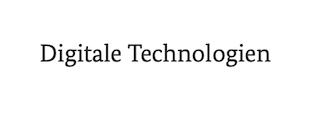ProDiNA
Intelligent prototype testing on the digital twin to optimise the sustainability of drive systems
Product testing not only consumes an enormous amount of resources; it also frequently leads to capacity constraints – impacting both efficiency and sustainability. For example, during the test phase it is often quite difficult to recognise defects, i.e. events that may make it unnecessary to continue testing. Another challenge lies in clearly identifying the cause of a defect. Manufacturing companies in particular are facing growing pressure to develop and use more sustainable methods and technologies.
The ProDiNA project’s vision centres on resource-conserving product development. The project team – consisting of technical users and experts in simulation, digitalisation and material properties – is developing a digital, scalable test procedure using pump prototypes as an example. This process combines a flow simulation with machine learning methods. A digital twin of the prototype is used as a link, which is enriched with various data – including geometry data, material characteristics and results from sensor measurements. Physical tests can be greatly reduced or even completely replaced by simulation. When carrying out a physical test, defects can be identified faster using machine learning so that the type and cause of the problem can be determined more precisely by halting the test before it is too late. The digital twin significantly cuts the time required to perform the physical test. The ability to simultaneously test several variants of a prototype likewise contributes to greater flexibility. The primary focus is on the sustainability of the product, including factors such as energy consumption, durability, failure rate and recyclability. With an increased product service life, resources can be saved on maintenance and replacement along with costs.
The data collected with the help of the digital twin will then form the basis for a Digital Sustainability Passport – an important component of the Digital Product Passport, which will be mandatory in the future and is considered to be a core element of the circular economy. The sustainability passport offers a comprehensive overview of all relevant product information for transparent communication, for example on material properties, recyclability or resource consumption.
The transfer of the project results to the market is already planned: Application partner Miele is taking the first step, including a transfer of the solution approach to other business units and locations. The aim is then to use the system across a range of topics and sectors, particularly in areas where intensive prototype testing is required.
Consortium:
- August-Wilhelm Scheer Institute for Digital Products and Processes gGmbH
- adesso SE
- Miele & Cie. KG
- INM gGmbH
- dive solutions GmbH
- Recommend this page:
- Print view

